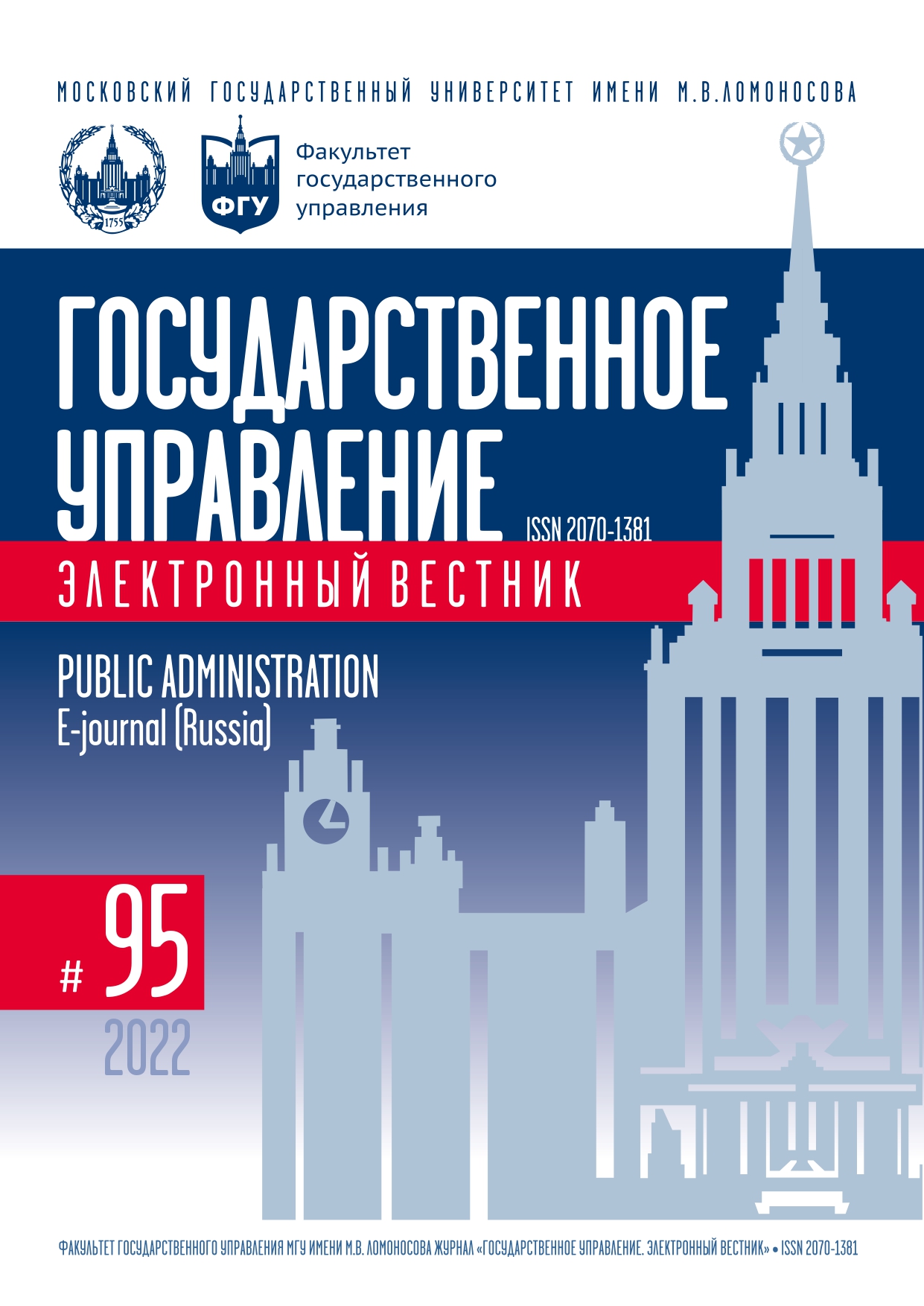Crises of the 21st Century; or, How Housing Construction Industry Can Survive in Russian Federation
Keywords:
Housing construction, economic crisis, theory of crises, construction economics, subsidized mortgageAbstract
Housing construction is one of the fundamental industries, the positive multiplier effect of which is recognized by the economies of all countries. In times of crisis, the housing industry often suffers the hardest hit, and governments resort to emergency support measures to keep the volume of construction and to prevent the emergence of problematic facilities. At the same time, the package of measures is developed without taking into account the nature of crises and without analyzing the factors that have the greatest impact on the housing sector. The purpose of this article is to determine the degree of influence of various factors on the commissioning of housing. The regression analysis of statistical data is used as a research method. The analysis has showed that the housing construction industry is most sensitive to changes in real incomes of the population and the cost of construction. Key macroeconomic indicators such as GDP, inflation and the interest rate also play a crucial role. Crises of different nature have a different impact on these factors, so the package of measures should be developed based on their change. The study has also showed that the support measures taken bring short-term results, do not solve the fundamental problems of the housing construction industry and do not contribute to the qualitative development of housing construction. Further study of this issue will allow forming a scientifically based methodology for choosing state support measures during periods of crisis.
References
Аганбегян А.Б. Новые тренды в кризисной ситуации 2020–2021 гг. // Экономика Северо-Запада: проблемы и перспективы развития. 2021. № 2 (65). С. 5–19. DOI: 10.52897/2411-4588-2021-2-5-19
Грушина О.В. Рассуждение об экономических циклах // Россия в XXI веке: итоги, вызовы, перспективы. Материалы международной научно-практической конференции. М.: Институт экономики и предпринимательства, 2011. С. 120–127.
Грушина О.В., Красноштанова Т.А. Отрицательный синергизм пандемии COVID-19 в сфере жилищного строительства на примере Иркутской области // Жилищные стратегии. 2021. Т. 8. № 1. С. 47–68. DOI: 10.18334/zhs.8.1.111955
Крымов С.А. Судьба жилищного строительства в условиях кризиса // Вестник Московского университета. Сер. 21. Правление (государство и общество). 2010. № 1. С. 89–105.
Ларионов А.Н. Малышев И.В. Проблемы функционирования жилищно-строительного комплекса в условиях экономического кризиса // Вестник Орловского государственного аграрного университета. 2010. № 1. С. 57–59.
Литвиненко И.Л. Цифровая экономика, инновации и коронакризис: новые условия развития России и мира // Экономика устойчивого развития. 2021. № 2 (46). С. 248–255.
Овсянникова Т.Ю., Рабцевич О.В., Югова И.В. Государственная жилищная политика в России: цели и реалии // Международный научно-технический журнал. 2018. № 4. С. 6–12.
Панфилов А.В. Жилищный сектор — важнейший фактор восстановления экономики и формирования среднесрочной экономической динамики // Проблемы прогнозирования. 2010. № 4. C. 127–130.
Попов В.В. Рынок жилья в Иркутской области и его перспективы в условиях кризиса. Модернизация экономики региона // Известия ИГЭА. 2009. № 5. С. 57–60.
Пугачев А.А. Влияние коронакризиса на вектор развития налоговой политики государств // Философия хозяйства. 2021. № 4. С. 243–254.
Рослякова Н.А., Митрофанова И.В., Дорофеева Л.В. Коронакризис и трансформация потребительского спроса в регионах России // Экономика: вчера, сегодня, завтра. 2020. Т. 10. № 5–1. С. 447–467.
Савчина О.В. Товмасян В.Ю. Рынок ипотечного жилищного кредитования России в условиях экономических санкций и коронакризиса // Вестник МГПУ. Серия: Экономика. 2022. № 2(32). С. 66–82.
Скобликов Е.А. Кризис в свете законов финансовых пирамид // Финансы и кредит. 2009. № 22(358). С. 61–70.
Торгашина И.Г. Жилищное строительство в период кризиса // Известия Иркутской государственной экономической академии (Байкальский государственный университет экономики и права). 2015. Т. 6. № 2. URL: https://cyberleninka.ru/article/n/zhilischnoe-stroitelstvo-v-period-krizisa
Хомкалов Г.В., Грушина О.В. Проблемы доступности жилья в контексте современных направлений развития методологии экономической науки // Известия Иркутской государственной экономической академии (БГУЭП). 2011. № 5. URL: https://cyberleninka.ru/article/n/problemy-dostupnosti-zhilya-v-kontekste-sovremennyh-napravleniy-razvitiya-metodologii-ekonomicheskoy-nauki
Чупров С.В. Веха реформ промышленности России и Иркутской области: либерально-рыночный романтизм и реализм государственного управления // Известия Иркутской государственной экономической академии. 2016. Т. 26. № 2. С. 204–212.
Aastveit K., Anudsen A., Herstad E. Residential Investment and Recession Predictability // International Journal of Forecasting. 2019. Vol. 35. Is. 4. P. 1790–1799. DOI: 10.1016/j.ijforecast.2018.09.008
Chmielewska A., Ciski M., Renigier-Bilozor M. Residential Real Estate Investors’ Motives under Pandemic Conditions // Cities. 2022. Vol. 128. DOI: 10.1016/j.cities.2022.103801
Fatourehchi D., Zarghami E. Social Sustainability Assessment Framework for Managing Sustainable Construction in Residential Buildings // Journal of Building Engineering. 2020. Vol. 32. DOI: 10.1016/j.jobe.2020.101761
Khan H., Rouilard J. Household Borrowing Constraints and Residential Investment Dynamics // Journal of Economic Dynamics and Control. 2018. Vol. 95. P. 1–18. DOI: 10.1016/j.jedc.2018.07.007
Ma L., Liu H.J., Edwards D.J., Sing M.C.P. Housing Price Dynamics on Residential Construction: A Case Study of the Australian Property Sector // Structural Change and Economic Dynamics. 2021. Vol. 59(C). P.525–532.
Oh H., Yoon C. Time to Build and the Real-Options Channel of Residential Investment // Journal of Financial Economics. 2020. Vol. 135. Is. 1. P. 255–269. DOI: 10.1016/j.jfineco.2018.10.019
Ustaoglu A., Yaras A., Sutcu M., Gencel O. Investigation of the Residential Building Having Novel Environment-Friendly Construction Materials with Enhanced Energy Performance in Diverse Climate Regions: Cost-Efficient, Low-Energy and Low-Carbon Emission // Journal of Building Engineering. 2021. Vol. 43. DOI: 10.1016/j.jobe.2021.102617
Zhou X. Mortgage Borrowing and the Boom-Bust Cycle in Consumption and Residential Investment // Review of Economic Dynamics. 2022. Vol. 44. P. 244–268. DOI: 10.1016/j.red.2021.03.004

